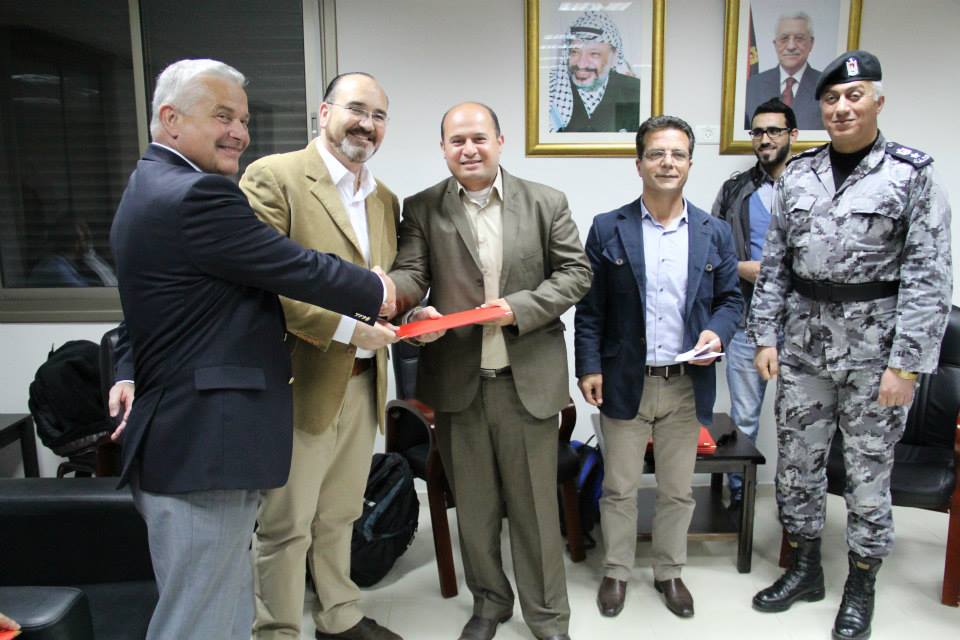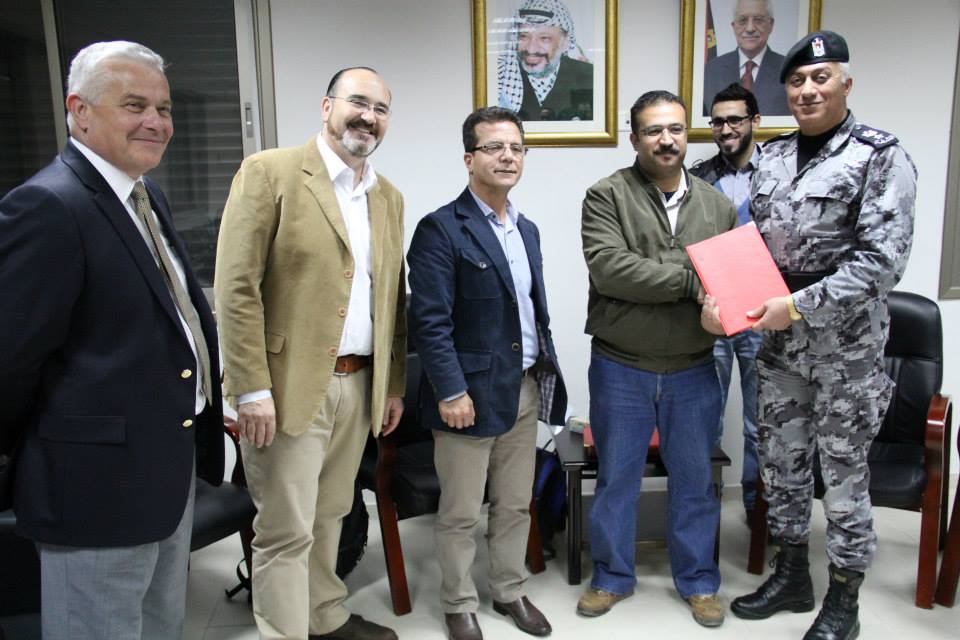In January 2015 CILC conducted in partnership with Human Dynamics and the Palestinian Civil Police (PCP) a three-week training of trainers at the PCP’s outstanding Jericho Training Facility. The course is one component of the EU funded project aimed at providing support to the Palestinian Civil Police.

18 graduating officers received their trainer’s certificates from the Director of the Jericho Training Facility, Lt. Col Zahir and the CILC training consultants (Mr. Paul Brookes, former UK Police Superintendent and Mr. Riad Mustafa, Palestinian Training Development expert).
The teaming up of a UK expert with a Palestinian and of course Arabic speaking expert was a successful approach. Whilst Paul Brookes has an extensive background as a Senior UK police officer and specific expertise in police training, Riad Mustafa has a more varied field of experience in civilian training environments.
Together they represented an effective training partnership, with Riad bringing his creativity to activities and Paul providing an additional degree of credibility and application to the specific role of a police trainer. This overcame any lingering cynicism experienced by participants, that creative and interactive training activities provide a more effective and efficient methodology than the traditional “lecturing” style of teaching that delegates had been used to. The feedback from participants was very positive and acknowledged the benefits of this multinational partnership approach. Riad’s native command of Arabic made a significant difference to the dynamic of participative activities. The subtle interaction between participants and group dynamic so important on a longer training course was picked up, if necessary challenged or explored; and de-briefed to provide the additional learning value that is often missing with even the best of interpreters!
The participants were provided with the Knowledge, Skills and Attitudes that they will need in order to deliver and facilitate interactive and participative trainings. The course was specifically tailored to enable a core group of the participants to replicate their experience and deliver subsequent trainings of trainers for their PCP colleagues (including the necessary manuals and training materials).

In order to ensure that the graduates maintain the high levels of skills and knowledge and above all confidence that they had at the conclusion of the classroom based course, the project is providing follow up support for graduates. This will take the form of a programme of observation, support, mentoring and coaching by their training experts as they begin the process of cascading the training to other police trainers.
To ensure that the learning isn’t diluted and that this interactive style of facilitative learning becomes the default style across the PCP, the expert team are also providing materials and manuals for a ToT programme at some earlier juncture. This approach, supported by a period of mentoring for the chosen graduates, will provide the sustainable legacy of an “in-house” ToT capacity for the PCP.
The next, critical component is a course aimed at those people within the PCP who have the responsibility for managing the organisation’s strategic training plans, including training needs analyses, prioritisation and resourcing and the effective evaluation of learning activities in which PCP staff take part.